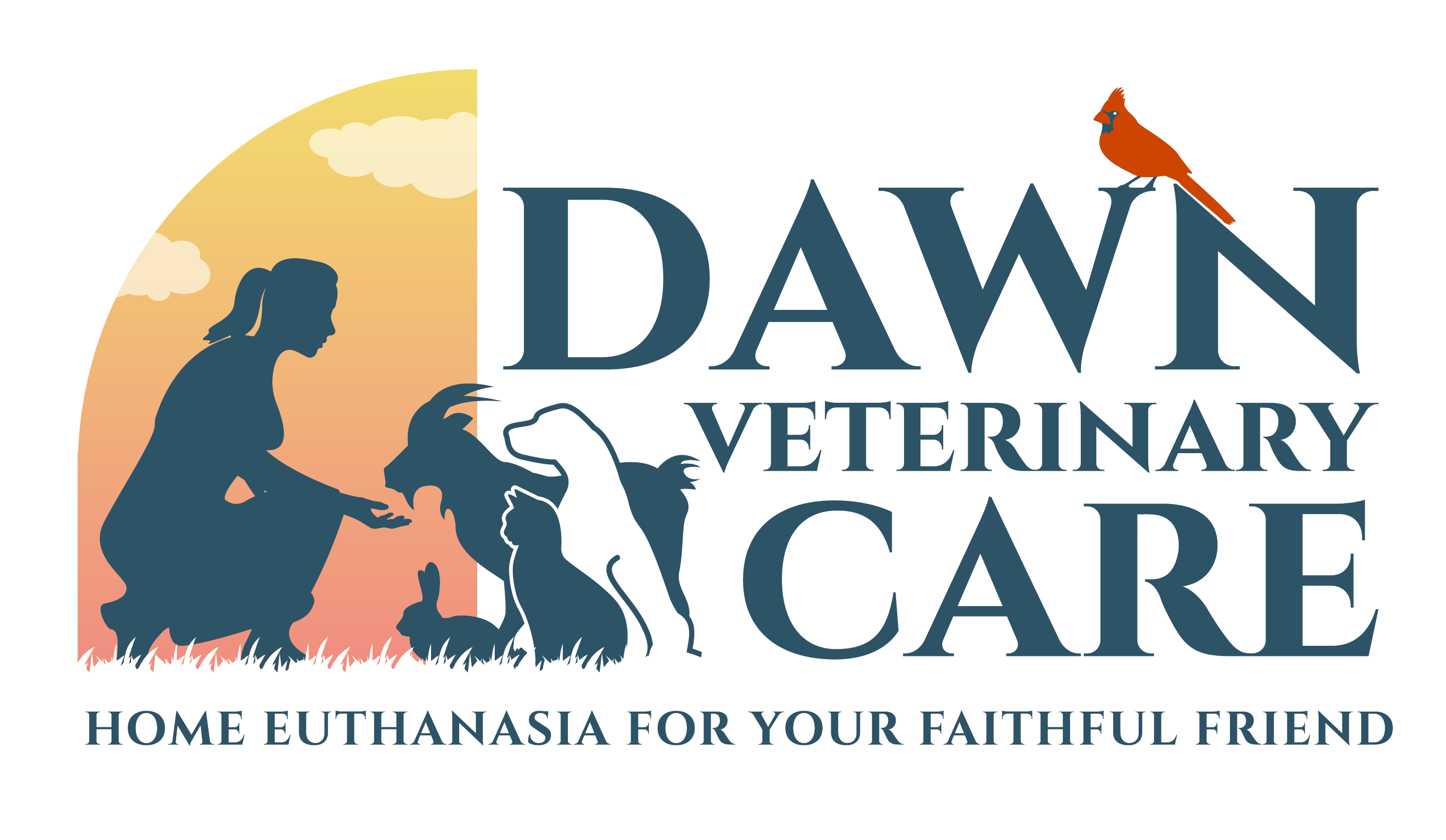Veterinary Links
Dawn Veterinary Care is here to help you even if it’s as simple as providing resources!

Veterinary Links
The internet is a wealth of information – so much so that sometimes locating quality websites can be challenging. That’s why our staff has taken the time to find a few links to share with you that we think you’ll find helpful:

Pet Euthanasia & End of Life
Knowing when it’s time to say goodbye to a dear pet can be incredibly difficult. The American Veterinary Medical Association (AVMA) has helpful resources about pet aging, illness, and euthanasia.
AVMA Links on Pet Aging and Pet Euthanasia
AVMA information about pet euthanasia and quality of life assessment can be found at the link below. There is a quality of life scale known as the HHHHHMM scale. Though scoring can be confusing, the overall subjects to consider are: Hurt, Hunger, Hydration, Hygiene, Happiness, Mobility, More Bad than Good. As pet parents, we look at our pets with love and want them to be with us longer. It’s difficult to be objective or even to know what to consider before euthanasia. The HHHHHMM scale can help you know what to consider in your pet’s quality of life. Learn more about the HHHHHMM scale here.
Ohio State University: Assessing Quality of Life
Ensuring a high quality of life for aging pets involves providing them with comfort, pain management, and veterinary care tailored to their specific needs. But this also means making difficult decisions, such as handling treatment of a terminal illness or disease. Ohio State University provides a guide on assessing quality of life and how to make these difficult decisions. It can be viewed here.
Resources for Cats
Cats can be especially good at hiding illnesses and discomfort from their families. Because of this, it can be particularly difficult when it comes to end-of-life care and decisions. The Feline Grimace Scale site and associated apps can be helpful. You can find more information at felinegrimacescale.com.
Burying a Pet
Burial of animal bodies is not permitted in urban and suburban areas.
Burial should only be performed in accordance with local and state laws and with the landlord’s authorization.
There are no official guidelines for the proper disposal of dead animals. To protect human,
animal, and environmental health please follow these guidelines:
- When digging a hole, ensure that the top of the body is covered with at least 2 feet of
earth. If this depth is not attainable, it is important to cover the hole with a large rock or
wire to prevent digging by wildlife. Note that:- Euthanized pet remains are poisonous and possibly mortal to other animals who
would ingest it - Pets that died of a contagious disease should be cremated
- A deceased animal may leak body fluids after passing
- Buried animals must not come in contact with any surface bodies of water or
groundwater including inland lakes, streams, rivers, open drains - Deceased animals should not be buried in sandy soils, black land, rocky soil, flood
land or around the home foundation - Animal graves must not be located within 200 feet of any stream or groundwater and
500 feet from a well used to supply potable drinking water
- Euthanized pet remains are poisonous and possibly mortal to other animals who
- Place a layer of lime at the bottom of the hole and on the body.
- Compress the earth and level the soil.
- Take a moment to yourself…
- Finally, if you ever sell your property, it is important to notify the future buyers of the
presence of any animals that may be buried on the land.
Please accept our most heartfelt sympathies for your loss…
our thoughts are with you and your family during this difficult time.
Grief & Mental Health Links
Losing a beloved pet can be extremely difficult and lead to strong feelings. In fact, according to the American Veterinary Medical Association (AVMA), research has shown that the human grieving process following a pet’s death is similar to that experienced by people who have lost a family member or close friend. Please be sure to seek professional help when needed. The information below is not a substitute for professional medical advice nor is it an endorsement of any specific product or resource. You are encouraged to determine what best suits your needs which may require consultation with a physician or licensed therapist.
Grief & Mental Health Links
Grief and Support Resources:
- The Association for Pet Loss and Bereavement has very good resources. https://www.aplb.org
- Web healing provides links and information on their site about grief and healing. https://webhealing.com
- The National Alliance for Grieving Children provides information specific to children and teens. https://childrengrieve.org
- Baltimore Humane Society Bereavement Counseling and Support: www.bmorehumane.org
Resources Specific to Children
Suicide Prevention Resources
- The American Society for Suicide Prevention https://afsp.org
In a CRISIS
Call: 800-273-8255 OR Text: TALK to 741741
